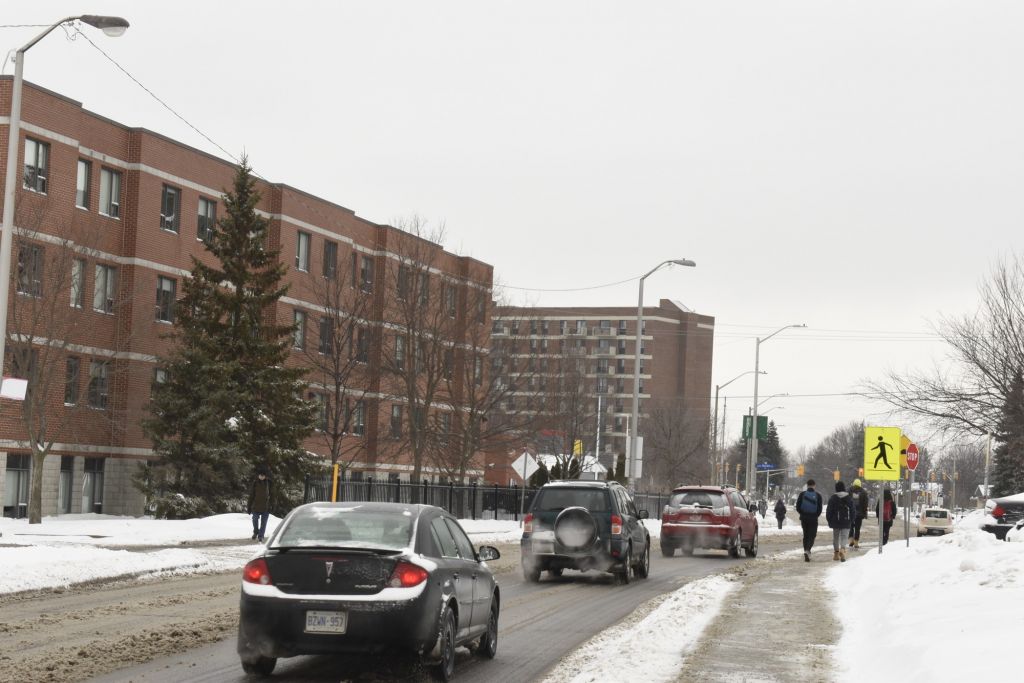Sarah Barnard, a fitness and promotion student, believes some landlords may discriminate against young people because they are seen as less dependable.
“They tend to view us as less reliable when it comes to making payments and taking care of maintenance,” said Barnard, 21, who has rented in Ottawa for six months.
With summertime just ahead, many students will be moving and the planning has likely already started. The world of tenant-landlord relations, however, is sometimes difficult to navigate. Whether you’re a first-time renter, or you’re looking to move again in the near-future, there are important things you should know about your rights as a tenant.
Rent and Rental Deposits
There are limits on how much a landlord can increase your rent. Generally, it’s decided by the Ontario government. According to the Residential Tenancies Act, your landlord can only increase your rent by a maximum of three per cent every 12 months unless they have a special reason. (For example, they plan on renovating the unit.)
Mamum Kayum, 26, is an international student in computer programming. He has been renting in Ottawa for three years and says he had many misconceptions about rental prices when starting out.
“It’s much more costly than they are actually providing,” said Kayum. He describes his apartment in Nepean as small and not worth what he’s paying for it.
Your landlord or superintendent has the right to ask for a deposit for the last month’s rent before you move in. According to the Residential Tenancies Act, the deposit can’t be more than the amount agreed upon for one month’s rent. A landlord can’t ask for a security deposit.
Pets and Company
Charlotte Guo, a first year project management student, left her cat behind in China when she came to study in Canada because she says she could not find a pet-friendly apartment.
“Before I came here I was planning to bring my cat here and I asked for several apartments and houses,” said Guo, 29. “But they just refused, they don’t want me to bring the cat.”
There’s good news for Guo and other pet-loving tenants: according to the Residential Tenancies Act, the “no pets” clause you see on many rental agreements is void.
The animal can cause the tenant to be evicted or refused tenancy only if it has substantial behaviour issues, other tenants or the landlord are allergic, or it’s considered to be an inherently dangerous species. Otherwise, the landlord has no right to evict or refuse tenancy on the basis of owning an animal.
A landlord or superintendent also can’t prohibit a tenant from having guests over — within reason. Of course, if you’re throwing a raging party, it might warrant a stern visit from your landlord. However, the Residential Tenancies Act says there’s nothing wrong with having a few friends or a partner over, as long as it doesn’t disrupt the reasonable enjoyment of your landlord or other tenants.
Eviction and Notice
Being evicted is never a situation a tenant wants to be in, and it’s usually a last resort for a landlord or superintendent.
But be careful, because your landlord can evict you for a laundry list of reasons, including paying your rent late. However, when you’re evicted, you still maintain rights.
The eviction doesn’t happen immediately. If you signed a yearly or monthly lease, your landlord or superintendent is required to give you 60 days written notice. (That’s 28 days for a weekly or daily rental). After that, you’ll attend a hearing with the Landlord and Tenant Board. They will decide whether or not the eviction is legal and fair, based on the facts presented by both you and your landlord.
Without receiving an eviction order from the Landlord and Tenant Board, your landlord or superintendent can’t proceed with any action against you, including the removal of your property from the premises.
Repairs and Maintenance
Malcolm Macdonald, a 20-year-old academic upgrading student, has rented in Westboro for three years. He says when maintenance is necessary at his apartment, it takes ages to get it.
“The landlords don’t really adhere to your needs on time,” said Macdonald. “I needed an automatic locking door and it took them seven months.”
We all have the desire — and arguably, the right — to live in a safe, clean environment. According to the Residential Tenancies Act, it’s the responsibility of the landlord to ensure that all units are well maintained and vermin-free.
If something breaks in your rental, it’s your landlord’s responsibility to pay for and administer the repair. However if you, your guests or anyone you allowed on the property caused the damage, you will have to foot the bill.
It’s also the landlord’s responsibility to deal with cockroaches, bedbugs, and other common household infestations. In some situations, the tenant may have to temporarily vacate the unit so the problem can be fixed.
The Residential Tenancies Act states that a landlord must give 24 hours written notice before entering a tenant’s apartment for maintenance reasons. The tenant has the right to accept or refuse entry.
For more information, read Action Housing’s FAQ, or for a full list of your rights and responsibilities as a tenant, review the Residential Tenancies Act.


